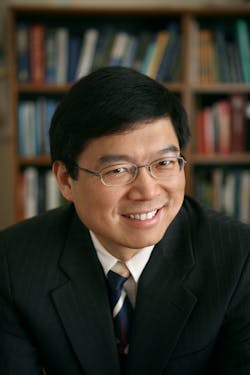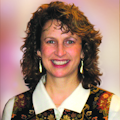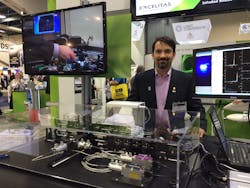BiOS/PHOTONICS WEST 2015: Fascination and celebration at BiOS 2015

The Biomedical Optics Symposium (BiOS) at SPIE Photonics West 2015 (February 7-12, San Francisco, CA) served both to acknowledge significant achievement and anticipate excitement yet to come. In addition to technology developments presented in the exhibit hall and research progress presented in the conferences, each BiOS exhibit day concluded with celebration.
On Saturday evening, the Hot Topics plenary included presentation of SPIE's 2015 Britton Chance Biomedical Optics Award to Lihong Wang of Washington University in St Louis for "outstanding lifetime contributions" in the development and application of photoacoustics and photon transport modeling. His talk, "Photon-Phonon Synergy: Photoacoustic Tomography and Beyond," inspired the audience and set the stage for seven other speakers. Three of them presented research focused on cancer: Vadim Backman of Northwestern University spoke on cancer screening and nanoscale cytology; Paola Taroni of Politecnico di Milano (Italy) explained optical assessment of collagen and breast cancer; and David Roberts of Dartmouth-Hitchcock Medical Center described fluorescence-guided resection of intracranial tumors. The remaining talks covered advances in imaging: Brett Bouma of the Wellman Center for Photomedicine got rave reviews for his report on endoscopic OCT, Richard Rosen of the New York Eye and Ear Infirmary aptly described adaptive optics for the retina, MIT's Peter So reported on nonlinear microscopy, and Rafael Yuste of Columbia University described simultaneous imaging of neural activity in 3D.
On Sunday evening, the "wow" continued as the 2014 Nobel Laureates in Chemistry delighted attendees by speaking on their prize-winning work. And on Monday, at the Lasers & Photonics Marketplace Seminar, Gary Tearney of the Wellman Center for Photomedicine at Massachusetts General Hospital/Harvard Medical School reported incredible in vivo imaging advances.
Also at the Lasers & Photonics Marketplace Seminar, Allen Nogee of Strategies Unlimited reported highlights from his new study (Worldwide Market for Lasers: Market Review and Forecast 2015), saying that medical is the fourth largest market segment for lasers, and the hottest growth areas are surgical (13% growth), ophthalmic (9%), and cosmetic (8%). Looking specifically at fiber lasers, Nogee pointed out that medical will overtake military to become the second largest non-industrial application in 2015—a trend that will continue for the foreseeable future, with medical growing at an increasing rate while other non-industrial applications, except for sensors, either grow much more slowly or decline. It is worth noting that the laser market does not include many of the technologies important for biophotonics; in fact, other light sources are becoming increasingly important, as are related technologies.
Three more plenary sessions took place on Tuesday, February 10. Gabriel Popescu of the University of Illinois at Urbana-Champaign discussed the use of optics to bridge molecular and cellular biology, and presented recent advances in phase-sensitive measurements. Thomas C. Südhof of the Stanford University School of Medicine described recent studies showing how dysfunction of neurexins and their ligands might predispose to neuropsychiatric disorders. And the evening plenary, hosted by the International Biomedical Optics Society group (which aims to facilitate communications between clinicians and engineers), featured a talk by Stephen Boppart of the University of Illinois at Urbana-Champaign: Transforming Medicine and Surgery with Biophotonics.In the expo hall at both BiOS and Photonics West, exhibitors in the life sciences arena served up product innovation (stay tuned for detail in future reports) and fun. In addition to Hamamatsu's mind-control demonstration (see Think Fast!), the Qioptiq booth featured a flow cytometry setup made entirely of off-the-shelf components (see image) and Edmund Optics invited attendees to assemble Optics Outreach Kits, including a laser pointer and prisms, to give to the children in their lives or to drop in a donation box for an education initiative.
About the Author

Barbara Gefvert
Editor-in-Chief, BioOptics World (2008-2020)
Barbara G. Gefvert has been a science and technology editor and writer since 1987, and served as editor in chief on multiple publications, including Sensors magazine for nearly a decade.
